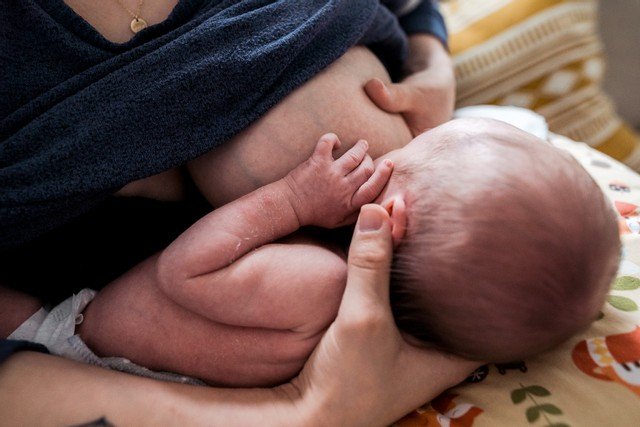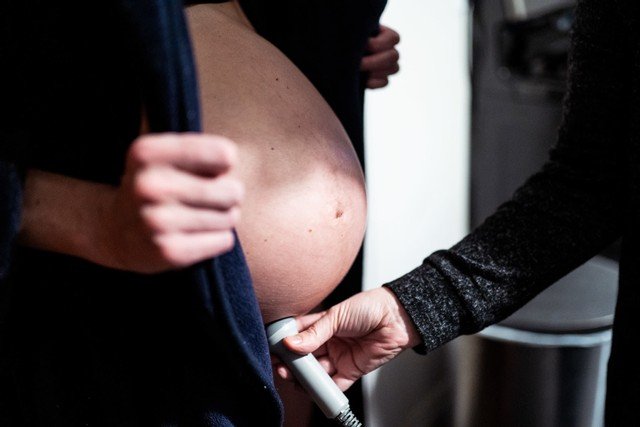Birth Doula 101: What Do Birth Doulas Do(ula)?
Written by Shay Gabriel
Photography by Annica Quakenbush
One major benefit of hiring a birth doula is the fact that their role is to serve you directly. Evidence Based Birth says it so well:
"Importantly, the doula’s role and agenda are tied solely to the birthing person’s agenda. This is also known as primacy of interest. In other words, a doula’s primary responsibility is to the birthing person—not to a hospital administrator, nurse, midwife, or doctor."
Doulas offer physical, emotional, and informational support to birthing persons and their partners. This invaluable doula support makes a difference, no doubt. Keep reading to gain insight into what birth doulas do and why it matters!
Physical Support
Not only are doulas continuously physically present throughout labor, but they also foster an environment conducive to birth, provide comfort measures such as massage and counterpressure, and assist/accompany the birthing person with tasks such as eating and bathing. All of this support would be awesome on a normal day, right!? In labor, the impact is truly invaluable.
Why it matters
Physical support from a doula helps the birthing person feel comfortable and confident, which ultimately supports hormones conducive to labor.
What it looks like
Fostering an environment conducive to birth
Offering massage, counterpressure, heating, cooling, fanning, water therapy, etc
Assisting with walking, eating, drinking, showering, bathing, eliminating, etc.
Emotional Support
One of the many ways birth doulas make a difference: continuous emotional support! Emotional support from a doula throughout pregnancy, birth, and postpartum helps foster a positive experience for the birthing person (& partner).
Why it matters
Emotional support from a doula helps the birthing person (& partner) feel cared for and comfortable, which helps foster a positive birth experience. Birth experience has a great impact on emotional health and wellness. Emotional support postpartum further impacts health and wellness. All of this has profound impacts on the family as they transition into life with a newborn / into life outside the womb.
What it looks like
Empathy, encouragement, empowerment, acceptance, acknowledgment, validation, affirmation
Processing through any fears or self doubt prenatally, helping the birthing person trust in themselves and their body
Presence throughout labor, reframing labor hurdles as milestones (e.g. vomiting in labor does the work of multiple contractions)
Processing through the pregnancy, birth, and postpartum experience
These are all incredibly important forms of support, especially coming from your birth team.
Informational Support
Information is (em)power(ment). Only when you have the information you need to make a good decision can you give informed consent!
Why it matters
Understanding your options and the evidence to support making your own decisions lends to a more empowered experience ("I am choosing this option from a place of awareness" vs "This is happening to me and my baby and I don't know why") and helps set the stage for empowered parenting.
What it looks like
Encouraging evidence-based information about pregnancy and childbirth options
Helping the birthing person (& partner) understand what's taking place throughout pregnancy and childbirth
Offering suggestions that support labor
Teaching the birthing person how to do new things, such as how to use a breast pump
“Annica gave our family wonderful doula support! I felt comfortable with her from the start, and she reached out throughout the pregnancy to offer support and check in. I can’t say enough about how helpful it was to have her help in laboring. She helped me manage the contractions and feel like I had a voice in the process. She also helped my husband feel like this was all right and normal. Even after birth, she’s been there to help process the change in our family and share a record and beautiful photos of the birth.”
meet your birth doula
The support of a birth doula throughout pregnancy, labor, and postpartum is an invaluable investment that we believe each and every birthing person deserves.
Learn more about our doula support, or discover our other birth services, including birth photography and videography.
Connect with us today!
Shay Gabriel is the content director at Sprout and Blossom whose love of parenthood and psychology has merged into a super-obsession of all things birthy and baby. She believes an informed experience lends to an empowered experience, no matter where you are along the journey.



























